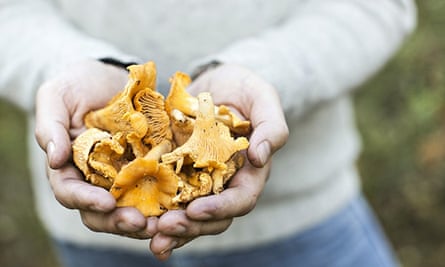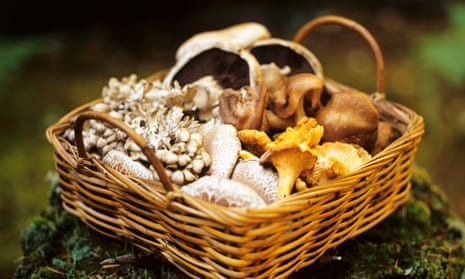The nights are drawing in, the temperatures are dropping and the trees are heavy with fruit. That can only mean one thing. Once again the hedgerows are going to be full of pasty-faced young men and women, wearing jumpers over their chefs’ whites, stumbling about looking for produce. Not for these guys the mundane business of phoning up suppliers and getting ingredients delivered. Oh no. They are living life on the edge. They are suckling at Mother Nature’s very teat. They are foragers.
In terms of self-marketing the appeal is obvious. Foraging turns restaurant cooks from mere stove jockeys into horny-handed earth children who can rock a cable-knit sweater. They aren’t merely making dinner; they are celebrating the wellspring of creation. What they are making is no longer just food. It is the earth and the sky and the sea. A dish with foraged ingredients immediately gains a patina of virtue regardless of how it tastes, simply because of how the ingredients were obtained.
Or not, as the case may be. It’s built on a false premise: that getting ingredients through farming is dull, boring and a less authentic experience. As the writer and broadcaster Tim Hayward once tweeted: “5,000 years of agriculture and now we’re all foraging. I bet the Mesopotamians wonder why they bothered.” Indeed. It’s farming – the mass production of food via an organised system – that allowed civilisation to flourish. The first plantings of wheat on the banks of the Nile thousands of years ago did not make us less ourselves but more so.
Then there’s the damage foraging does. If it really is such a marvellous thing everybody should be encouraged to do it. And yet if everybody surged out to pillage the woodlands, the impact would be disastrous. Already warnings are issued each year over the damage done to the eco-system of the New Forest – the very eco-system those foragers are meant to be celebrating – by people plundering it for wild mushrooms. It’s the same story in parts of Epping Forest in Essex and Ashdown Forest in Sussex. Too many of the leather-hatted professional foragers have become enemies of the countryside, rather than its custodians.

But the biggest argument against it is the lacklustre and uninspiring food that so often results from all that clomping about down in the woods. Very few chefs know how to use those ingredients. René Redzepi at Noma in Copenhagen is one, David Everitt-Matthias at Le Champignon Sauvage in Cheltenham another. If Everitt-Matthias puts musty wilted ground elder on a dish, or offers you an acorn panna cotta it will be for a reason. Just as fusion food was fine as long as it was done by Peter Gordon, so foraged ingredients are fine as long as they are used by chefs with intelligence, wit and good taste.
Too many others merely end up chirping about how one foraged ingredient tastes of lemon and another of liquorice and a third of aniseed. To which I want to shout: so why don’t you leave the poor bloody wild plants alone and just use lemon, liquorice and aniseed instead? Going out into the fields to pick ingredients you either don’t need or don’t know how to use doesn’t make you a better chef. It won’t improve your food. But it’s guaranteed to make you bloody annoying.

Comments (…)
Sign in or create your Guardian account to join the discussion